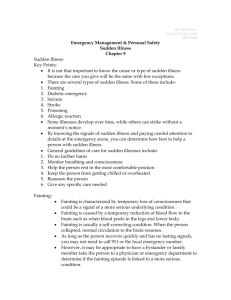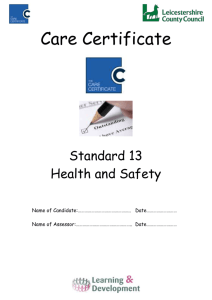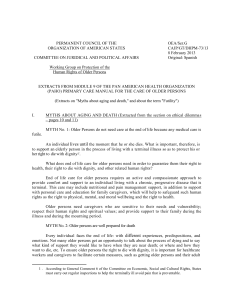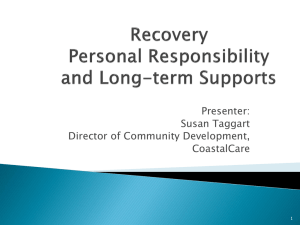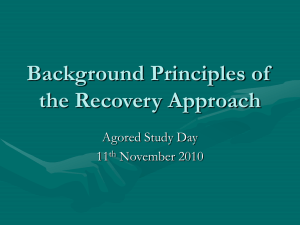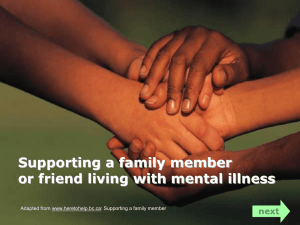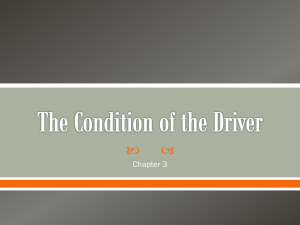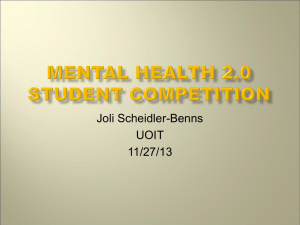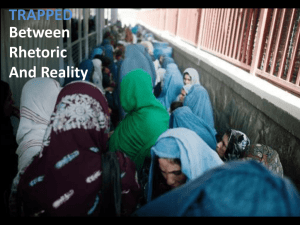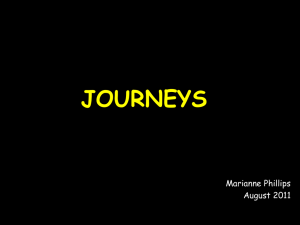L-Slides Module 8
advertisement
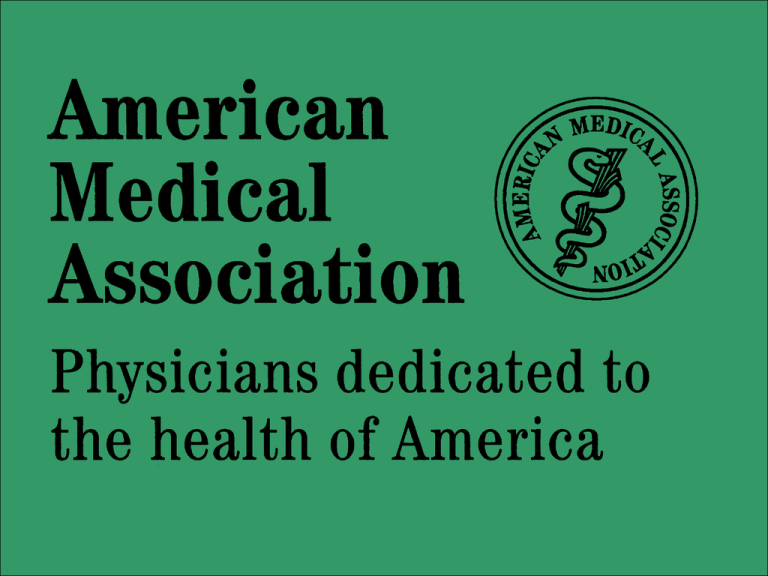
E P E C The Project to Educate Physicians on End-of-life Care Supported by the American Medical Association and the Robert Wood Johnson Foundation Module 8 Sudden Illness Objectives Describe the features of sudden illness that require special skills Know how to communicate effectively guide decision making Explain the benefits and risks of a time-limited trial approach Sudden illness . . . Patient, family, caregivers under stress Prognostic uncertainty Chaotic environment, multiple care providers . . . Sudden illness Continuous, sequential decision making assess / reassess the goals of care Acute symptom management Patient, family, caregivers need support Overview . . . Provide structure Communicate possible outcomes Identify decision points in advance Use goals of care to guide decision making . . . Overview Take sociocultural issues into account address differences use clear language Manage symptoms effectively Impact of stress on caregivers Provide structured interaction Encourage one 1° spokesperson Identify regular communication times Prepare early for future decisions Set expectations for future communication Communicate the plan Communicate range of possible outcomes . . . Avoid waiting until more is known Discuss what is known Discuss uncertainty openly Provide the full picture Identify most & least likely outcomes Acknowledge limits of individual experience . . . Communicate range of possible outcomes Discuss what is likely to happen next Be specific and use examples Discuss what is known Use evidence-based information Use gentle repetition Identify immediate and future decisions Identify decision points in advance Signs that a decision may be near Time course expected before next decision Prepare for changing goals discussion of informed consent Use goals of care to guide decision making Goals of care determine the treatment plan values, preferences help determine goals Identify the degree of recovery that would be acceptable certainty recovery could be achieved Informed consent Nature of the illness Recommended treatment Reasonable alternatives Chance of each alternative achieving its intended goal Burdens, benefits of each alternative Benefits, burdens of timelimited trials Use while more information is gathered Can stop life-sustaining treatment Provides structure, helps families May result in a poor outcome Decision to stop may be more difficult Sociocultural differences . . . Distrust of the medical system or physicians Unrealistic expectations of the medical system or physicians Any life, no matter how compromised, is worth living . . . Sociocultural differences Belief in miracles Death is “the enemy” Death should not be discussed openly Manage symptoms Essential to quality of life Relieve symptoms throughout Permits continuation of a portion of the treatment plan Impact of stress on professionals Stressful working conditions Burnout common Communication, common goals help Provide support systems E P E C Sudden Illness Summary

